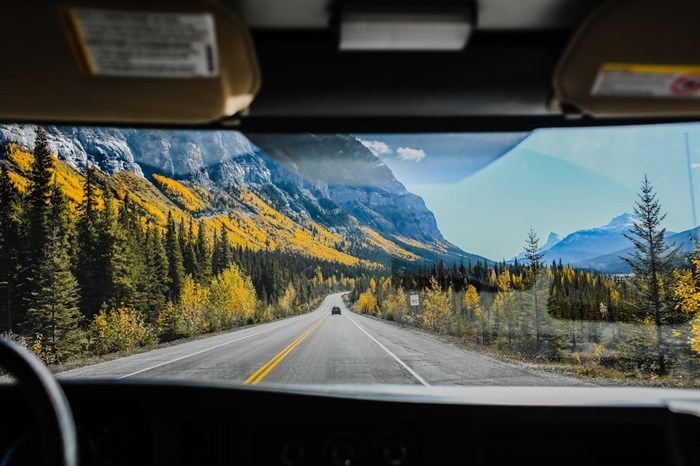
Image Credit: SUBMITTED
May 05, 2025 - 12:00 PM
OPINION
Twice a year, I drive 1,881 kilometres of the Trans-Canada Highway between Vernon and Winnipeg. Groucho Marx once said, “I’ve had a great evening…but this isn’t it.” In parody, let me declare, I’ve driven a great highway…but this isn’t it.
I can’t speak about the conditions of Canada’s Highway beyond Winnipeg…because I’ve never driven a kilometre beyond its eastern city limits. But I do know ever bump, crack, pothole and rut on the highway between the two…having hit and variously bounced across most of them in a Ford F-350 Dually towing a 48-foot horse trailer.
My wife, Bonnie, and I just finished our last trip - the 26th between B.C. and Florida - and having both driven the equivalent of nearly twice around the Earth at the equator…our credentials as highway experts are more or less unimpeachable.
As a matter of pride - not to mention safety and convenience - I wish the Trans-Canada Highway was the envy of every country with roads. It is not. And while we drive equally bad segments of Interstate Highways in the U.S….the roads - by and large - are better.

(DON THOMPSON / iNFOnews.ca)
I’m unsure why Canada’s Route 1 isn’t more of a gleaming example of road engineering and maintenance than it is. Poor highways are, of course, unsafe, and they are costly in other ways…like repair and maintenance on my truck, trailer and tires.
For example, the electrical cable connectors between our truck and trailer have to be replaced periodically…as the contacts become so bad from the severe vibration of bouncing over the various craters, cracks and uneven pavements that running lights won’t work. Also, these connections power turn signals and brake lights.
Further, our tires that should last perhaps four years on good roads…are lucky to last three years riding the Trans-Canada Highway. The cost of riding down the road increases a couple thousand dollars a year…simply from poor road conditions.
Of course, roads are expensive…and nearly everyone says, “No more taxes!” But infrastructure has a price…and all of us use or benefit from better roads. The goods we all buy would be cheaper…or not increase as much…with better roads.
Who do you think pays the higher costs the trucking companies incur due to bad roads? Think of it like a tariff…something Donald Trump doesn’t understand. The trucking companies, retailers and wholesalers simply pass their higher prices on to consumers…you know, you and me.
Another cost is what we lose because the painted lines on our highways…simply aren’t visible. Canadians travel at night…and in rain and snow…the Great White North, you know.
Nearly 300 people die in traffic accidents on B.C. roads every year. But neither the Insurance Corporation of British Columbia (ICBC) nor B.C.'s Ministry of Transportation and Infrastructure - among the many statistics they maintain - keep track of any correlation between poorly visible painted lines and vehicle accidents and deaths.
There is no such category, not even as a contributing factor. You can find statistics on how just about everything else contributes to deaths…weather, drug and alcohol impairment, speeding and aggressive driving, medical issues, distracted driving…even wild animals.
But anyone with a vehicle in B.C. - or far that matter anywhere in Canada - drives on roads whose lines are so faded and worn that they are practically useless. If you’re thinking…the painted highway lines used to be brighter…last longer…you’re right.
In 2009, Environment Canada adopted something called the Volatile Organic Compound (VOC) Concentration Limits for Architectural Coatings Regulations. Our lawmakers in Ottawa - among other important tasks - are charged with protecting our environment and health from air pollutants that increase the risks of respiratory and heart diseases.
So, as of Sept. 10, 2010, traffic marking coatings - paint - couldn't exceed 450 g/L of VOCs. And exactly two years later, the legal limits were further lowered to 150 g/L from May 1 to Oct. 15. Basically, the regulations eliminated solvent-based (petroleum) paints for highways in favour of alkyd-based paints in coastal and northern areas and water-based paints for the interior.
The reason for the more strict regulations is that VOCs have a photochemical reaction in sunlight and contribute to ground-level ozone, which, in turn, contributes to smog. To be clear, VOCs are released in the atmosphere by both solvent-based and water-based paints...though certainly less with the water-based varieties.
Don't get me wrong, I fully appreciate both Environment Canada's and our Ottawa lawmakers' attention to matters that make the nation healthier and safer. Though I wonder why we aren't just as concerned with the one million kilometres of asphalt highways in Canada, which leach petroleum hydrocarbons and other toxic contaminants into our waterways and sewers nationwide.
Nearly, 2,000 people are killed each year in traffic accidents across Canada…with another 150,000 suffering serious injuries. The Canadian Council of Motor Transport Administration says that has a social cost of $40.7 billion…every year.
Maybe we need to spend some money - yes, tax dollars - on the things that are really killing and maiming us…every year. And perhaps we should start on a highway that stretches 7,821 kilometres…the Trans-Canada Highway…our nation’s highway.
— Don Thompson, an American awaiting Canadian citizenship, lives in Vernon and in Florida. In a career that spans more than 40 years, Don has been a working journalist, a speechwriter and the CEO of an advertising and public relations firm. A passionate and compassionate man, he loves the written word as much as fine dinners with great wines.
We welcome your comments and opinions on our stories but play nice. We won't censor or delete comments unless they contain off-topic statements or links, unnecessary vulgarity, false facts, spam or obviously fake profiles. If you have any concerns about what you see in comments, email the editor.
News from © iNFOnews, 2025